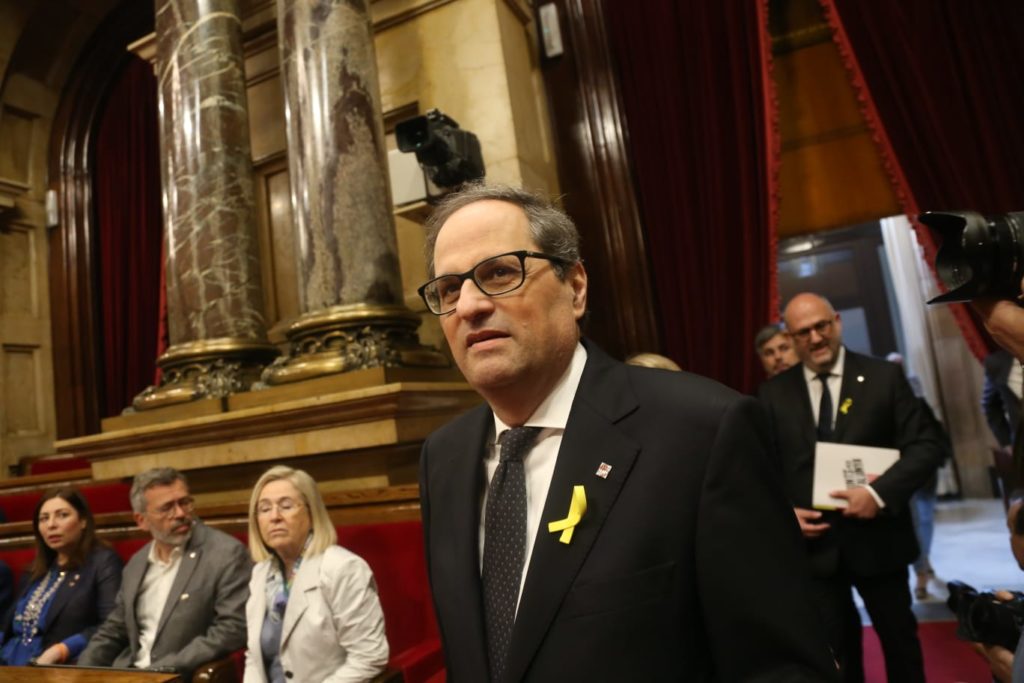14.05.2018 - 10:54
The choice of Quim Torra for the position of provisional president of Catalonia is bad news for democracy. Everyone knows that the president of Catalonia is Carles Puigdemont and that the election results of December 21 confirmed him in the post. But for a number of reasons, the outcome of the vote has been ignored.
The Spanish authorities ignored it, as they are the main culprit of the situation that we find ourselves in and they have never accepted the people’s will. The election result was also ignored by the Speaker of the House who —at the eleventh hour— called off the parliamentary session where Puigdemont was due to be reinstated on January 30. Ultimately, president Puigdemont himself has also chosen to ignore the vote by avoiding a head-on clash with Madrid over the election of the regional president.
The long intervening months between December 21 and May 10 have allowed the dust to settle, shedding light on the many key events that took place during the republican autumn. Both blocs —Spain and the Catalan republic— have been weighing their strength. Madrid has utterly failed to impose its project, but Catalonia’s secessionist forces have also hesitated and shown weakness. We are mostly in a lull, hardly a suitable time for making decisions like this —one that had to be made, nonetheless.
At this point in time, fresh elections made no sense. They wouldn’t have changed things much. Overall, Catalonia’s pro-independence parties might have gained a handful of seats and the power balance within the republican camp might have shifted somewhat. But, ultimately, things would have remained mostly as they are today and, above all, we would not have an alternative in parliamentary to the current majority bloc formed by Junts per Catalunya plus ERC.
Still, the question now is what sort of strategy lies behind the decision to elect a provisional president? An idea has circulated in the last few days: it represents the instrumental will to regain the power to make decisions, such as when to call a regional election [which, under today’s direct rule, lies with the Spanish government]. Furthermore, this would apparently be part of a larger plan devised by the Council of the Republic in exile to heighten tension with Madrid, eventually leading to a snap election in a few months’ time, called by the Catalan authorities as a political protest against the trial of the Catalan political [who were imprisoned some months ago]. The trial is due to begin in autumn or winter. The goal with these elections would be to win well over 50 per cent of the popular vote in order to regain the republican momentum and get Europe involved in a negotiated solution, given the judicial mess we are in.
I have no evidence to support these claims, but —as all of us, I think— I intend to remain watchful, as the appointment of Quim Torra as president is hardly the end of anything. That is about the only thing that seems totally clear.


